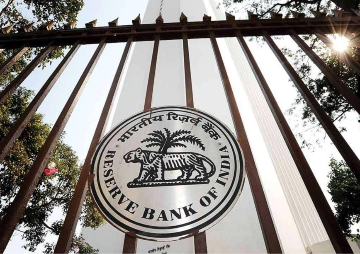A former director at the Cabinet Secretariat, D.S. Rajan, says that though India-China relations are peaceful for the time being, New Delhi cannot lower its guard as China's intentions are not clear with regard to the border issue.

"The leadership-transfer in China was very smooth, in spite of the Bo Xilai incident," said D S Rajan, a former director at the Cabinet Secretariat, who initiated a discussion on 'Leadership-change in China and Implications for India', at the Chennai Chapter of the Observer Research Foundation (ORF-C).
Rajan gave a background on the fundamental principles of Chinese leadership and narrated the facts on the recent changes. He pointed out that there was a severe deficit in the representation of ethnic minorities in the new administration with just one Tibetan on the Politburo and none on the Politburo Standing Committee, the highest decision-making body of the Chinese Communist Party (CCP). This can imply an 'uncertainty in minority policy' of the new regime, Rajan said.
"Young and educated professional leadership has taken over the CCP leadership, and the average age of the CCP Central Committee is 56 years," Rajan said. Pointing out that there was no representation for the military in the new Standing Committee, he said, this contrasted with the previous administrations where the military representation was high at one point of time, but was gradually getting reduced.
As Rajan pointed out, male members of the new Standing Committee were 'sons of revolutionary leaders of the initial years of the country'. He also said that with the presence of these 'princelings', who are in a majority with four in a total of seven, they will have a say on policy-making in the party. It may bring out a feeling of discrimination because it is against the CCP constitution, which treats everyone to be equal. This has thus come under heavy criticism in the country with accusations of 'dynasty politics'.
With Xi Jinping becoming the party General Secretary and taking over as Chinese President on March 5, Rajan predicted there would not be much change in the fundamental ideologies in domestic and foreign policies. He lauded Xi Jinping of being a 'leader of the people', as the President-elect has his own stand in terms of policy-making and is also quite accessible to the people, devoid of protocol.
The new regime will continue with the stance of its predecessors, he said. The party is now focusing on two goals - 2020 and 2050 - which were set sometime back. These two are significant years, one being the centenary year of the Communist movement, and the other, that of Communist China. The party has set clear-cut achievement targets on all fronts for the two landmark years, Rajan said. China is looking forward for 2020, a year when the nation hopes to double its present GDP and per capita income of the rural and urban population. By 2050, China is expected to realise the great dream of joining the advanced countries of the world. The nation's 'military modernisation' would have been completed by then.
Rajan also touched upon the war policies of China. He said that the Chinese do not have a first-strike policy but they would engage in their offensive preparation for war. He also said that China would look for using military strength to deter a war rather than waging one. He added that this was the first administration where a 'non-ground force commander' has been given a berth in the Central Military Commission. This is clear evidence that China is looking for combined warfare and thus the strategic changes.
Though such are the policies of China, one can easily rule out a large-scale war on a global scale but the Chinese would always be ready for any local confrontations that may come their way, Rajan said. In this context, he asserted that though India-China relations are peaceful for the time being, New Delhi cannot lower its guard as China's intentions are not clear with regard to the border issue.
While talking about the stance of the new regime, Rajan said that China would always be on the look for a 'win-win' situation in relation with other countries, but they would not "yield to any outside interference". The 'win-win' relation came for mention during the discussions that followed the talk, when Rajan, referring to the border dispute, said, "China has decided to shelf the issue for the time being, and would seek to sort it out when the climate is favourable. Until then both the countries are looking forward to foster friendly relations."
Rajan went through various issues being faced by the nation at present , including corruption, economic disparities and severe polarisation between the rich and the poor, and said, "if China be successful in tackling the domestic challenges is a big question." He said that economic development in China was unbalanced and uncoordinated with poor agricultural infrastructure. But India can feel a positive effect with the growth of China, as India can improve its exports and cater to the population of China when it cannot cope up with the increasing demands.
When the discussion skirted along the issue of China's security threat, Rajan said that according to the 'work report' of the party, the US alliance system in Asia-Pacific, and the American presence in Indo-China peninsula were two of the important concerns of the party. Rajan quoted a statement of Xi Jinping which said, "The Army should be improved for deterrence capability" to reassert the stance of PRC in military modernisation. He added that military modernisation and economic development go hand in hand for Xi.
(This report is prepared by Ramalingam.Va, 1st year BA (Journalism & Mass Communication), S R M University, Chennai)
The views expressed above belong to the author(s). ORF research and analyses now available on Telegram! Click here to access our curated content — blogs, longforms and interviews.




 PREV
PREV

